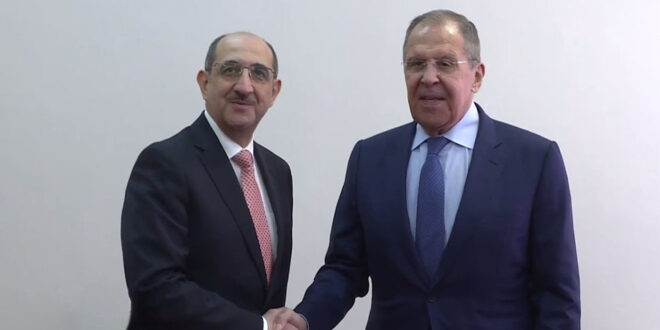Foreign and Expatriates Minister Bassam Sabbagh emphasized Syria’s commitment to regional and global security cooperation during his speech at the 2nd International Conference on Eurasian Security in Minsk, Belarus. Syria’s participation, he stated, underscores its dedication to fostering dialogue on collective security in response to the escalating global issues of conflict, polarization, and interference that negatively affect many nations.
Sabbagh argued that Eurasia, beyond its geographic and political significance, represents a foundation for a new world order anticipated by developing nations. Syria, which has endured over a decade of conflict fueled by terrorism, values the initiatives of countries advocating for a security system based on equality and mutual action to eliminate threats without hegemonic interference. He underscored the urgent need for a comprehensive security strategy that respects national sovereignty and independence.
Addressing key regional issues, Sabbagh condemned the ongoing foreign occupation of territories in the region, the seizure of resources, and violations against sovereignty. He specifically criticized Israel’s actions, accusing it of violating international laws and committing war crimes against defenseless civilians, journalists, and UN workers without international accountability, due to support from powerful allies. Peace, he stated, can only be achieved when occupation and aggression cease, and aggressors face accountability.
Shoigu Calls for Political & Economic Support for the Syrian Regime
Sabbagh also highlighted economic security as integral to international stability, noting that monopolistic practices of current global economic institutions pose a serious threat. He condemned Western-imposed unilateral coercive measures on nations like Syria, intended to impose political agendas and interfere in sovereign matters.
In a subsequent meeting with Russian Foreign Minister Sergey Lavrov, the two leaders discussed regional developments, focusing on the need to halt ongoing Israeli aggression in Palestine, Lebanon, and Syria. Sabbagh reaffirmed Syria’s dedication to providing safe refuge for arrivals from Lebanon affected by the recent attacks, countering claims by Western states regarding obstacles for returning Syrian refugees.
Both ministers also discussed preparations for the upcoming Astana-format meeting on Syria, scheduled for mid-November. They emphasized the importance of this track in working toward security and stability in Syria, reiterating their countries’ commitment to cooperative solutions amid regional and international challenges.
Minister Sabbagh concluded by reiterating Syria’s vision for a pluralistic approach to security, emphasizing cooperation over conflict and unity over division, aligning with Syria’s efforts to confront destabilizing foreign agendas in the region.
This article was translated and edited by The Syrian Observer. The Syrian Observer has not verified the content of this story. Responsibility for the information and views set out in this article lies entirely with the author.


